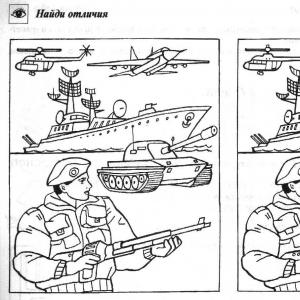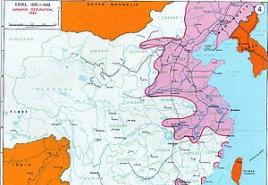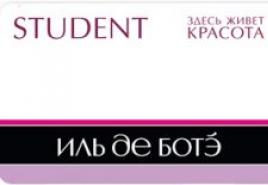How to participate in tenders correctly: types of tenders, how to prepare for them, preparation of a package of documents. Instructions for participating in tenders - where to start Searching and working with tenders - the basics
It is no secret that participation in electronic trading, and even more so in government procurement, requires experience and qualifications. Not every company interested in government contracts has a specialist on staff with knowledge and skills in working with tenders. But this work includes not only the actual participation in the auction, but also obtaining an electronic digital signature, selecting trading platforms, registering on them, ordering a bank guarantee and much more.
Difficult places
The matter is complicated by the fact that electronic trading is quite strictly regulated by the state. Moreover, the legislation in the field of public procurement is relatively crude and is constantly being refined. Therefore, participants in government auctions have to tirelessly monitor the news and keep abreast of all changes. You cannot quickly learn once and then reap the benefits of this training - you need, as they say, to “simmer” in the juice of the government order, devoting a significant part of your working time and effort to it.

Why you should participate
In fact, there is no need to despair - government orders remain an attractive sales market for Russian business, and it conceals enormous potential for the development of your company. This is evidenced by bare numbers: according to the Ministry of Economy, 42.8% of trades in 2014 were declared invalid. Most of them did not take place due to the banal lack of participants. Can you now imagine the scale of missed opportunities?
All you need is to properly organize the tender work. Having solved this problem, you will be able to use government procurement resources for the benefit of your own business. However, to do this, you will have to somehow get “other people’s brains” - people who can participate in procurement, avoid risks and achieve contracts.

How to organize tender work
There are at least 5 ways to attract specialists to work. Let's review and compare the available options to determine the right one for your company.

Hiring a freelancer remotely
The easiest and most affordable way is to hire a freelancer who works remotely. This is mainly done by individual entrepreneurs and small organizations with a limited budget. Indeed, a freelancer is the most economical option, but also risky at the same time.
Typically, remote workers work on a piece-rate basis and on an advance payment basis. In order for a specialist to start doing something, he should transfer money. In this case, as a rule, no agreement is concluded. That is, you act at your own peril and risk. It often happens that after receiving an advance payment, a freelancer disappears, and you have to look for another one. As a result, we have wasted money and time.
Another problem is the qualifications of the specialist. Are you sure that the selected employee has the necessary knowledge and experience; will he not fail in such an important matter as participation in government procurement? Therefore, before hiring a freelancer, it is worth asking for feedback on their work. In addition, it would be a good idea to look at information about him on social networks, check mailbox addresses, etc.

Hiring a tender agency with payment based on results
You should be very careful about such a form of cooperation as hiring an agency, subject to payment based on the result (won auction). The fact is that not a single professional tender agency can guarantee the victory of a participant. Whether you win the tender or not depends, first of all, on you and your cost.
Of course, the agency will help you choose a suitable trading platform, eliminate corruption factors, find a good auction and register as a participant. But promising victory is, to say the least, unprofessional.
Payment-based services are usually offered by two categories of performers:
- Beginners are people without sufficient experience who are interested in their own training in practice (as a rule, they do not have an office, a full-fledged website, or official reviews from clients).
- Scammers are so-called “agencies” that lure clients with promises of winning a tender, and in the process of interaction, when the client “takes the bait”, they ask to transfer a deposit to the account (for example, as a guarantee of your reliability).
The likelihood of finding a qualified specialist this way is extremely low. At best you will lose time, at worst - money.

Hiring a tender agency with a subscription fee
A fairly common option that many agencies offer is cooperation with a subscription fee. In this case, your chances can be assessed as 50/50 - it all depends on the company you contact.
Unfortunately, there are agencies on the market that require a subscription fee of 15-70 thousand rubles per month from the customer, promising to provide a range of services for searching, selecting tenders and participating in tenders within an agreed period. In reality, all further “activities” of the company come down to sending you certificates of completed work.
You should be wary of the fact that the agency offers to sign an agreement with a subscription fee for a long period (even if it promises a substantial discount). In addition, carefully read footnotes and regulations. In particular, under the contract you should have the right to refuse to participate in a tender that is obviously unprofitable.

Hiring an employee
It would seem that a worthy option would be to hire a specialist to join the company’s staff. But this method also has its disadvantages.
Firstly, finding a truly qualified tender specialist is quite difficult. If there is such a person who agrees to work for you, he will probably manage several other projects in parallel. You will have to constantly monitor the activities of a full-time professional, and conflicts often arise on this basis.
Secondly, the hired employee may not have the necessary experience. The result: lost tenders, irretrievably lost time, lost profits, and even the need to invest in employee training.
Thirdly, a full-time specialist will have to pay a substantial salary year-round, while tender work is characterized by seasonality. This means that for about six months the employee will rest at his workplace and work to “decompose” the atmosphere in the team.

Tender agency with payment for work done
The most preferable, in our opinion, way to participate in the auction is an agreement with an agency, subject to payment for the work done. This option is reliable and productive. Almost all conscientious contractors offer their customers a similar cooperation scheme.
How interaction is built:
- You (the customer) yourself determine the tender in which you plan to participate and the services that you need;
- The contractor (tender agency) assesses the complexity of the order and issues an offer;
- After signing the contract, the agency carries out the agreed work.
In this case, the customer has the right to refuse cooperation at any time if the quality or cost of the services does not suit him. And the performer, for his part, is motivated to put maximum effort into fruitful and long-term partnerships.
As you can see, the described method is the most effective. In addition, it involves a minimum of risks for both the customer and the agency. This is exactly how most companies that have achieved significant success in electronic trading operate.
Have you had experience organizing tender work? Write your answers in the comments.
The term itself does not fully reflect the essence of domestic business practice. Firstly, it never appears in documents regulating relations between the parties, and secondly, the procedure is sometimes somewhat similar to.
First, you need to clarify that the law does not contain the concept of tender; this process is called a competition, bidding, or auction. But the main feature is the same for all these designations. Based on the auctions (tenders), an agreement is concluded between the seller and the buyer, but the first party here is the one who won in a kind of competition with other participants. In essence, here several sellers are fighting for one contract, the terms of which are determined by the buyer.
The practice of doing business between entities of various formats (public and private) is necessarily transferred to a competitive basis. The same principle is often used by commercial organizations that are looking for profitable offers from suppliers.
How does the tender work?
So, by and large, we don’t have tenders. Everyone who practices this sales format participates in competitions, auctions, trades... But no matter what they call it, there are a number of characteristic features that distinguish this version of business relations from others:
- the buyer states his conditions in strict form;
- they compete for the contract;
- the whole process takes place in accordance with a certain procedure.
An entrepreneur should understand tenders, if only because they provide an opportunity to get new clients. And this may not only be of interest to those who are targeting buyers financed from budget funds. Many commercial organizations and companies find suppliers through tenders.
Why are tenders held? Actually, this combines the desire to get the most from the supplier on the buyer’s side and the regulation of the entire procedure. Government agencies organize competitions and auctions because this is required by law. This format assumes that they will save budget money by finding the cheapest and most profitable supplier in this way. The same thing drives commercial organizations.
And here it is worth understanding that the seller who wins the tender will not always be in an advantageous position. This is based on several points:
- It is necessary to offer the lowest price among the participants, perhaps even unreasonably low.
- The terms of the contract will have to be fulfilled even when it is not economically profitable for the supplier or contractor. For example, in the event of an increase in the cost of materials, components, energy resources, etc., associated with inflationary processes or an increase in exchange rates, the final product will have to be sold to the contract holder at the price established by the tender. Sometimes even at a loss.
- Winning a tender requires lengthy preparation and the strictest possible adherence to established rules for the preparation of documents. In addition, the process of working on sites where competitions are held has a number of nuances, and in order to fully comply with them, an entrepreneur needs to spend certain expenses, for example, purchasing an electronic signature.
Advice: when starting to work with tenders, do not try to immediately go for large and long-term transactions, this is a completely different level than opportunity. Do not forget that refusal of a contract or its failure to perform in full may lead to unpleasant consequences in the form of compensation to the buyer, compensation for damage or lost profits, inclusion of the supplier in the register of unscrupulous ones, and the like.
Types of tenders and their classification
Once again, it is worth emphasizing that for domestic business, the term tender unites purchases organized according to a certain procedure on a competitive basis. That is, it is conditional. Other names are legally established.
Tenders have their own gradation, accepted in domestic business:
- Competitions vary in composition of participants:
- municipal (state), where the customer is a budget organization, and budget funds will be used for procurement;
- commercial, where the acquisition is carried out at the expense of the company’s own money or attracted by it.
- There are types of tenders based on the form of procurement:
- The competition is held in the case of complex and expensive contracts, for example, in high-tech projects, construction, IT, and defense sectors. It may have several stages, open and closed format, and also be non-competitive.
- Request for quotes or price list competition. A special feature of this technique is the small purchase amount, usually up to half a million rubles.
- Auction or electronic trading. The format is used by all market participants who have the status of a municipal or state customer. All electronic auctions are held on special platforms selected by the Russian government. Legislative support – Law 94-FZ.
Advice: an entrepreneur (potential supplier) must begin his participation in tenders with a careful and detailed study of this particular Law - 94-FZ. Also, do not forget about Law 223-FZ, which regulates procurement of individual legal entities. The documents themselves are quite difficult to understand; you will have to study and re-read them ten times to fully understand the details. However, without this stage, it is unsafe to start operating as a seller on electronic platforms; there are risks not only of wasting time, but also of bringing trouble to yourself and your company.
It should also be noted that special situations occur in this area. There are many myths surrounding this delivery format that there is a serious corruption component. It is impossible to completely deny this possibility, and it is pointless. Often, tenders actually become a tool for negotiated transactions. Or rather, their purpose is to exclude elements of corruption from practice, but it is present, and it is impossible not to admit it.
“Symptoms” of contractual tenders - how to distinguish such proposals?
Here you need to take into account one feature of that part of the domestic business where budget organizations act as customers. All their activities have been transferred to the procurement rails, squeezed into the strict framework of the procedure. Any of the applicants who correctly fill out the application and documents and also offer the lowest price can win the contract.
But what about the other components? For example, the ability and ability of the supplier to respond to the buyer’s urgent wishes in terms of timing, flexibility, and some other nuances of making deliveries? Very often, a buyer who has already worked with a certain supplier wants the contract to go to him. After all, it has already been time-tested and fully suits all parameters... But in a situation with a tender, this is absolutely not necessary. The contract may have to be concluded with some unknown (for the customer) organization, which is still a dark horse, and working with it will not always be comfortable. That is, winning a tender based on the pricing platform does not guarantee the buyer its performance in other parts. In addition, he has no confidence that the supplier will be able to fully comply with the conditions preferred by the customer.
That is why in practice there are such contractual tenders, when the buyer, by all means and cleverly placed commas, creates such formal conditions that purposefully make it difficult for other participants to obtain a contract that have not received approval in advance. And this approach does not always indicate a corruption background, that is, roughly speaking, bribes, kickbacks and the like. Although you shouldn’t participate in such a tender either, unless your company is the one that received the preliminary go-ahead.
So, how can you recognize a tender where the parties have already obviously reached an agreement, and its conduct itself is a formality?
5 components of “negotiated” tenders
It is worth noting that this approach is almost uncharacteristic of commercial structures. The companies' own money is involved, the control is much stricter, the goals are purely to find a profitable supplier, and the approach to the procedure is much more flexible. That is, businesses do not have an “obligation” to hold tenders; expediency and efficiency come into play here. Although there are a number of cases where hired employees of commercial structures were very interested in gratitude from suppliers for “help” in concluding contracts, and, conversely, performers found themselves in unpleasant situations with unscrupulous customers, having worked out part of the contract and not receiving payment for the product or service.
Advice: Having received an invitation to a tender from a commercial organization, carefully check the business reputation of the customer.
Government procurement is more susceptible to such a disease as contractual tenders. Their signs:
- fuzzy, unclearly stated, extremely confusing, contradictory in parts terms of the technical specifications;
- short, clearly unrealistic deadlines (every entrepreneur who knows his field can determine where the time frame is at the limit of possibilities and where it is beyond);
- inflated contract costs combined with strangely detailed requirements for the supplier;
- the condition that the application must be accompanied by an already completed part of the work;
- The customer's tender history consists of contracts with a very limited number of companies.
All these are signs that the buyer is using a technique to scare off “left” suppliers. In some cases, the tender is held “for show”; the contractor has been working on the project for a long time. Fighting for such contracts is at a loss, unnecessary headache, time and money costs. No, of course, you can appeal the results of the tender by submitting a corresponding application to the FAS. But this should only be done if the company has already built up “muscle mass”, has experience in this kind of bidding, and has competent specialists on staff who can prove you are right.
Although you need to understand that the widespread opinion about the mass nature of contractual tenders is a myth. The vast majority of applications from customers on electronic trading platforms do not have a corruption component, and participation in them is much less risky than investing in.
If you want to start making money on government procurement, then you will need to go through a preliminary stage of preparation for this. Moreover, it is quite complex and labor-intensive.
How to work with tenders for dummies - step-by-step instructions
Once again, it must be stated that commercial structures act a little differently than government ones when choosing a supplier on a competitive basis. The former develop the procedure on their own; they are not limited by rigid boundaries; they can involve those they know or are interested in participating, or they can announce an open competition in the media or on specialized Internet platforms.
State or municipal organizations operate within the framework of a legally prescribed procedure. Therefore, to become a tender participant, an entrepreneur must:
- study Law 94-FZ, namely the procedure for selecting a supplier prescribed therein, which sets out the rules for the tenderer;
- select an ETP from five that are selected by the government of the Russian Federation (for electronic auctions for government procurement);
- obtain an electronic digital signature (the certification center issuing the digital signature must be one of those accredited at the selected site);
- install the necessary software;
- undergo accreditation at the ETP to participate in the tender;
- take part in electronic auctions;
- sign a contract upon winning.
Actually, the algorithm itself is not that complicated, if this is not the first time. There are several nuances that you need to pay attention to:
- Unfortunately, universal digital signatures have not yet been invented. Therefore, the tax certificate issued to you cannot be used to participate in the tender; you will have to get another one.
- When choosing a platform for electronic auctions, you need to pay attention to its specialization and working conditions.
- Each site out of the 5 selected has detailed instructions and user guides. They are written in detail, even too much. Do not neglect to study them carefully before starting work on any of the ETPs.
- The key to successful work can be such a banal thing as paperwork. A good source of information and obtaining the necessary skills can be competition documentation from competing organizations.
- As a rule, in all electronic auctions there is a principle of securing intentions, that is, a cash deposit. It is calculated as a small percentage of the transaction amount, but nevertheless, like , participation in the tender costs money. Although this is a repayable amount, for large contracts the supplier company may not have enough of its own money, and it may not be advisable to “freeze” working capital. Therefore, it is worth either taking care of the availability of a reserve, or a bank guarantee that can be used for these purposes.
How to participate in construction tenders?
The algorithm for passing the preparatory stage has already been described above. There are practically no differences for the construction industry. There are only a number of nuances that a new company needs to take into account in tenders:
- Just participating in tenders, even without winnings, will help the company make itself known, they may pay attention to it, and this will improve its status.
- When preparing an application, special attention should be paid not only to the essence of the offer (the applicant’s proposal), but also to its justification, which is contained in the information about the company. This may be a description of special equipment, technologies used, a presentation of similar objects put into operation, reviews of established customers, and the like.
- As a rule, construction tenders are carried out in two stages. The first is the announcement of the start of the competition and information about the proposed project, the second is the analysis of submitted applications and the selection of the winner. In a closed bidding format, you can become a participant only by invitation from the customer. It is worth considering that the entrance ticket sent does not always mean that the company is a welcome guest. If the deadlines for submitting an application and preparing documentation are very tight, then this should certainly lead to the idea that everything has already been agreed upon with another contractor, whom they want to see as the second party to sign the contract. Your participation is necessary for formal compliance with the procedure.
- Today, this format is becoming increasingly widespread in the construction of small and small projects and private housing. That is, almost the entire construction industry is put on a tender basis. A number of experts believe that this will improve the quality of work in general and take the entire field to a new level. In fact, competitions or auctions are the future.
- open;
- closed;
- two-stage;
- good reputation;
- high rating;
- image;
- The organizing company prepares a test task, with the help of which it determines the strength of the company. Based on the solution to this task, the participating company prepares a proposal.
- At the final stage, a decision is agreed upon.
- “prices” tender, in which participants communicate prices, terms, quality, etc.
- an “open brief” tender, in which the customer indicates an approximate vision of the project, and the participants offer a creative solution;
- At the first stage, you need to collect the necessary list of documents that submit an application for participation in the tender.
- After the application is submitted, you confirm your participation, agree to the terms and conditions and undertake to comply with them until the end of the competition.
- If something doesn't suit you, then you can withdraw your application or make changes, but only strictly after the deadline set by the organizer.
- At this stage, the special tender commission has the right to extend the deadline for accepting applications. If the conditions of the event change, participants will receive written notification.
- If the list is full or the application deadline has expired, then the official consideration of applications begins, which requires in-depth study.
- details;
- certificates;
- permits;
- licenses;
- Formation of a list of necessary requirements that tender participants must comply with. As well as making a decision on holding a tender.
- Invitation to participate.
- Selection of participants. Depending on the type of tender, the selection of participants will be made before a strictly established deadline.
- Clarification of the parties' positions.
- Collection and presentation of ready-made proposals.
- Final selection of the best offers.
- Announcement of the winners.
- Knowledge of Federal Law No. 94 will help determine the terms and conditions that the customer should have taken into account when drawing up the tender regulations.
- Choose one. The Russian government has established five existing trading platforms.
- Get a unique digital signature. Such a signature allows the document to acquire legal significance.
- Pass the necessary accreditation on the selected trading platform.
- Conducting auctions. Typically, one procedure should not exceed two days.
- If you win the tender, then you need to sign a contract.
- Registration certificate.
- A document that confirms that you are a taxpayer.
- A certificate from the bank indicating your financial stability.
- A certificate from the tax office confirming the absence of debt to the state.
- Balance sheet for the previous year.
- Certificates that confirm the standard quality of the product.
- statutory documents;
- documents confirming the powers of the general director;
- licenses if the activities carried out by the organization are subject to licensing;
- , if, in accordance with the law, participation in an SRO is mandatory for the organization.
- initial bid price range;
- region of delivery;
- customer name;
- notification keywords and more.
- deadlines;
- penalties.
In contact with
Participation in tenders can bring good income. However, most companies do not dare to take such a step because they do not know how to carry out this procedure correctly. This article was written specifically to highlight all the important points related to the tender market. By reading this article to the end, you will be able to significantly increase your knowledge in the field of tenders.
Dear reader! Our articles talk about typical ways to resolve legal issues, but each case is unique.
If you want to know how to solve exactly your problem - contact the online consultant form on the right or call by phone.

It's fast and free!
Participation of companies implies compliance with certain rules that will be regulated by the terms of the tender. Failure to comply with these rules will result in immediate refusal to cooperate. Despite all the difficulties associated with tenders, they should not be ignored. By concluding a lucrative contract, you can make good money.
It should be noted that the scope of tenders is quite wide. They can be used both in the industrial automotive industry and in ordinary small businesses that provide services or goods.
In order to participate in the tender, it is not enough to have a proposal from the customer. You need to clearly understand how to participate in tenders in order to prove yourself from the best side.
Tender classification
Each of the above types has its own characteristics and regulations. Let's explain each in detail.
Open

An open tender is a procedure by which the customer invites everyone to take part in the tender. Potential participants can learn about the tender from advertising campaigns and special websites.
Most often, tender documentation is sent out free of charge or the cost is set to cover all the costs that arose during its creation. Such documentation usually includes the presence of conditions and rules that must be followed throughout the tender.
In most cases, this type of tender is used to carry out public procurement orders. The same cannot be said about ordinary companies. The direction does not provide for this type of training.
An open tender makes it possible to receive an order on very favorable terms. However, an unlimited number of participants can register, which in turn increases the workload on the service staff.
You can order services for holding a tender from specialized companies or conduct it yourself.
Closed

A closed tender is held among a limited number of participants who have received an invitation to participate.
The organizing company recruits participants according to the following criteria:
To increase the attractiveness of your company, you need to have good self-promotion. This is what large companies do. More and more often we notice them on TV screens or other media.
Participants in such a tender will never know about each other before the official start of the tender. This condition makes it possible to exclude collusion between companies. To conduct such a tender you do not need to spend a lot of time and effort. And the list of participants, in most cases, does not exceed 5 companies.
Two-stage

Most often, a two-stage tender is called a specialized tender with a limited number of participants. A two-stage tender differs from a closed tender in that it has an unlimited number of participants. In order to participate in such a tender, you must comply with certain rules that govern the rules for conducting this tender.
The two-stage tender is carried out in several stages. However, it should be noted that in this case, more time will be spent on conducting such a tender.
The procedure is as follows:
However, conducting such a tender is divided into several components:
Who can take part?
The basic conditions for participation in tenders are quite simple. Both companies and individual entrepreneurs can participate in tenders. Domestic and foreign companies can participate in the auction. It should be noted that in order to participate in the tender, you must have a pre-specified list of documents.
How to participate (step-by-step instructions)?
To take part in a tender you need to know what is needed for this.
We offer step-by-step instructions, following which will help you take part in the tender:
Sample application
We point out that the application consists of two parts. The first part describes the agreement on the conditions by which the procedure for conducting the tender is regulated, as well as the provision of the necessary information about the product.
The second part provides information about the participant, which includes the presence of:
It should be noted that the application can be submitted either electronically or in writing. If the documentation is completed correctly, it will be accepted from you.
Rules
 The conduct of a tender is regulated by a strict sequence of necessary actions that must be followed to conduct any such event.
The conduct of a tender is regulated by a strict sequence of necessary actions that must be followed to conduct any such event.
The rules include 7 stages, with the help of which the procedure for conducting a tender is normalized:
If you are going to take part in tenders, then you need to know the following list of important points that relate to tenders:
Preparation of documents
 The preparation of documents must be carried out in accordance with the established list of required papers for participation in the tender, which were determined by the customer.
The preparation of documents must be carried out in accordance with the established list of required papers for participation in the tender, which were determined by the customer.
To take part in the tender, you need to prepare the following list of certified copies of the following documents:
Participation in government procurement is a way to earn money by selling goods, work or services to the state. Have you decided to try it? We have compiled step-by-step instructions on how to participate in government procurement, what needs to be done and where to start participating in government procurement tenders and electronic auctions.
To learn how to participate in government procurement from scratch, use step-by-step instructions on how to work according to 44-FZ.
Before the beginning
The first thing anyone who is puzzled by the question of how to start working in government procurement should do is. Pay attention to this task so as not to waste time and immediately focus on potentially profitable trades. If the check shows that government customers need your goods, works and services, proceed to the first step of the instructions on government procurement for dummies.
Step 1. Preparing the necessary documents
Step-by-step instructions on how to participate in tenders for a beginning individual entrepreneur (individual entrepreneur) and LLC (limited liability company) begin with preparing copies of the following documents:
You may need copies of completed contracts and acts to them, documents on the qualifications of employees, certificates of absence of debts on taxes and fees.
Step 2. Registration of digital signature and accreditation on the trading platform
Many government purchases for beginners, according to law 44-FZ, are carried out in the form of trading platforms. To participate in them you must register.
The electronic signature must be enhanced and qualified. This is required by Art. 5 44-FZ.
An electronic digital signature is a flash drive with a digital key stored on it that confirms the authority of the person using it. Such keys are issued by special organizations accredited by the Ministry of Telecom and Mass Communications. The service is paid, the price of an electronic digital signature for participation in trading on all eight trading platforms is about 5,000 rubles. in year. After expiration of the digital signature, it is necessary to update it. To obtain a key, you need to submit an application to the certification center and provide a set of documents. The service period is 2-3 days.
Since 2019, there has been a transition to electronic procedures. They are held at eight sites:
There is also a specialized platform for closed electronic trading and government defense procurement - .
Step 3. Search for tenders and study documentation
All purchases under 44-FZ are posted on the website www.zakupki.gov.ru. Electronic requests for quotations and electronic auctions for government procurement are the most optimal procedures for beginners. These are quick tenders, they do not necessarily require collateral, the supplier is determined only by price. We recommend starting with them.
Using the service, you can find suitable tenders based on established criteria. Need to install:
When you click on the notification, a page opens containing complete information about the ongoing purchase. At this stage, it is important to carefully study the requirements of procurement documentation in order to learn how to participate in government procurement and correctly prepare an application for the customer.
Pay attention to the requirements for securing the application, providing licenses and certificates, and whether documents confirming qualifications and experience are needed. Carefully study the terms of reference and the draft contract for the availability of contract security, deadlines, compliance of the volume of purchase with the capabilities of the organization, and the presence of penalties for improper implementation.
Step 4. Opening a special account
If the documentation provides for securing the application, then you will have to open a special account under 44-FZ. This concept came to the contract system with large-scale amendments in July 2018. Previously, money to secure an application was placed on the trading account of the electronic platform.
In 2019, you need to open a separate bank account in which the money to secure the application is located, and will also be debited from it. We have not only prepared step-by-step instructions, but also collected information on the conditions under which banks open special accounts. Read more about this in the article. Or watch the video.
Step 5. Preparing and submitting an application for participation
The participant's application is in electronic or paper form, drawn up in full accordance with the requirements of the procurement documentation. Documents must be certified by an authorized person of the participant and contain reliable information. A separate instruction would be useful here. The prepared materials must be sewn, numbered, placed in an envelope, sealed and delivered to the customer at the address specified in the documentation. submitted electronically through the trading platform. It is important to submit it before the deadline specified in the documentation expires. Applications submitted late will not be accepted into the tender. If the documentation provides, the participant must transfer the specified amount to the customer’s bank account or the trading platform operator before submitting it.
The tender results are published on the EIS website. How to become a winner was described in the article. Instructions on how to submit an application will also be useful.
Step 6. Signing the contract
After the victory, the work with documents is not finished.
The customer must send a draft contract. For example, for an electronic auction, 5 calendar days are allotted for this. The winner has 5 days to review the project. Pay attention to the sections:
If you need to make changes, you can submit it once. This right is provided for in Art. 83.2 44-FZ.
Video: step-by-step instructions for participation in government procurement and tenders
One of the main questions that companies taking part in a government contract for the first time would like to answer is, of course, where to start participating in the tender?
For beginners, finding the answer to this question can take a lot of time, and extra time in business is often an unaffordable luxury. Therefore, we decided to help you save your resources.
Participation in tenders step by step instructions
The beginning of participation in electronic trading begins first of all with obtaining an electronic digital signature (EDS).
This process is quite simple and does not take much time (provided that you promptly prepare all the necessary documents).
To obtain an electronic signature, you must contact a licensed certification center. Here you will be advised and informed about what papers will be required. The electronic digital signature will be ready in 1-2 days from the date of submission of all necessary documents.
The next stage is registration in the UIS and accreditation to ETP
Just like obtaining an electronic signature, this process cannot be called labor-intensive. You should attach all the necessary documents when registering with the EIS. This information will be sent to the sites automatically. After successful registration of ERUZ participants, accreditation on electronic trading platforms takes place within one working day.
Please note to the fact that at the first stage of registration in the Unified Information System, it is necessary to undergo authentication in the Unified Identification and Information System (Government Services Portal). Only after this will it be possible to proceed to the next stage of registration.
Getting started with tenders
Having successfully completed the previous two stages, you can begin selecting a tender. To do this, go to either the official website public procurement, or to an electronic trading platform.
If you have not yet received accreditation for any ETP, then perhaps it will be more convenient for you to choose a tender on the official website zakupki.gov.ru - the most complete list of tenders is presented here.
If you are already accredited on a certain trading platform, then it is probably easier for you to find the most suitable government procurement on this ETP.
You can choose a tender according to various criteria: region, contract amount, type of product, etc. Today, large electronic trading platforms (and, of course, the official government procurement website) are equipped with convenient filters that make searching easier.
If you are interested in effective participation in tenders, you can use our tender support service. To search for trades, you can use ours.
Common Mistakes
The entire process of preparing for participation in public procurement is quite simple and takes approximately a week. Be sure to take this into account when choosing trades.
To avoid the initial stage being delayed, pay attention to the most common mistakes made by suppliers:
attaching scanned copies (not originals) of documents;
attempts to attach files weighing more than 12 MB (on the site of Sberbank-AST CJSC - more than 16 MB) during accreditation. In this case, the page either freezes or displays error information;
the attached documents do not have the necessary stamps, signatures or are difficult to read;
ignoring fields marked with an asterisk (that is, required fields).
Attentiveness and efficiency are the most important qualities when preparing to participate in public procurement and bidding in general. Strictly following all instructions can help you spend much less time and money.
You can learn more about some of the stages that must be completed to begin participating in government auctions in our articles under the “Question and Answer” section.
LLC MKK "RusTender"
The material is the property of the site. Any use of the article without indicating the source - the site is prohibited in accordance with Article 1259 of the Civil Code of the Russian Federation







